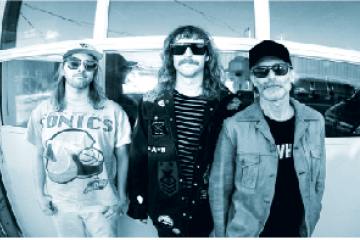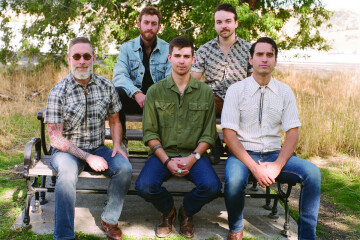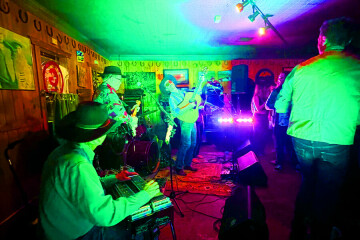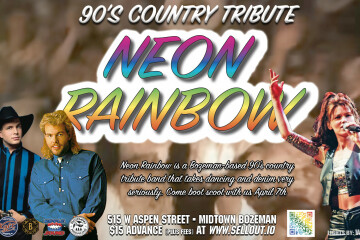Peter King Talks about the Local Music Scene and his new tribute to 90’s country NEON RAINBOW
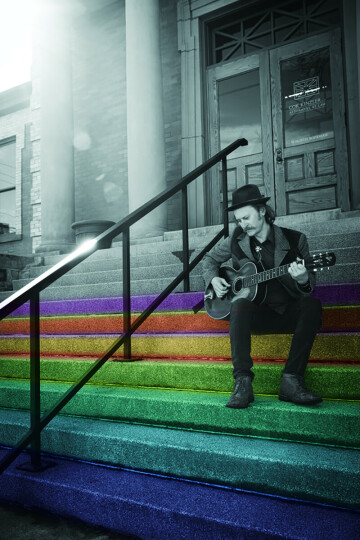
Having played live music around the Bozeman area for a couple of decades Peter King has been a staple of the Bozeman Music Scene for at least half of that time. Walking the line between country, rock, punk and grunge Peter has honed his craft into a style that is truly unique. We recently caught up with Peter to talk about his life and his music. and his new band Neon Rainbow.
Brian Ripple: Hello Peter, So outside of music, what are you up to these days?
Peter King: I’ve been trying to not be a shut-in during the winter and get outside, so I’ve been skiing a lot this year, which has been really good for my mental health and appreciation of the area. I’m trying to connect with people outside of bars and music. It’s been a nice winter, really.
BR: You have been around the scene here as long as I can remember; When did you first start playing music in the Bozeman area?
PK: Aside from jazz bands in high school, I feel like I first started putting together bands of my own that played live around 2003.
BR: Can you list off some of your old projects and tell us in some detail about a couple of your favorites?
PK: In the early 2000s I used to do an acoustic duo project with my friend Rasp Thorne called Bleakly Pining, which was a lot of dark, sad songs. I remember we’d cry at most every performance.
After that, I had this band with Nate Reid called Crow and Coyote vs. The Sky, which was kinda jazz/hip-hop. I’d play bass and guitar with Nate’s beatboxing and spoken word. It was very introspective and unique.
Somewhere in the mid-2000s, I started The Salamanders, which was very lo-fi punk stuff, really free, really abrasive. I didn’t really know how to sing or play guitar that well, but we tried to make up for it by being fast and loud and smashing our instruments.
One of my absolute favorite projects after that was The Meatskin Jubillee Jugband, a project spearheaded by the late Chris Donahue, who reinvented old-time music from the 1920s with comical lyrics about lobsters and whiskey. I played the washtub bass. Sometimes the band had like ten people in it… some playing jugs, spoons, trash cans, or other homemade instruments. It was also pretty chaotic, but without a doubt the funnest band I’ve played in. There are some old YouTube videos of us at the Haufbrau which are just hilarious. There’d be like ten minutes of drunken banter in between songs with all the instruments feeding back in the PA, but, somehow, when we’d play songs everyone just fit into place and it had some incredible cohesion to it.
Sometimes I’d sit in with The Pale Riders, and The Touchers, doing backup vocals and rhythm guitar, which was a huge honor because they were my two favorite bands at the time, and maybe still?
BR: I noticed you had a Salamanders show recently… how was that?
PK: It was amazing to play loud rock ‘n’ roll again, and I’m happy with the work that Aaron Banfield (bass) and Ezra Bowman (drums) put into it. I guess when Ezra was 18 or so, he snuck into a bar and watched a Salamanders show. I think it was the time I jumped off the rafters and ended up shattering the vertebrae in my lower back. It just seems cool to me to connect with newer generations of musicians. It feels great to bring the songs back to life with a new perspective. The whole thing has been very cathartic for me in dealing with the loss of my best friend and bandmate, Joe Knapp. He left such a huge crater in the Bozeman music scene when he died but, in a highlander type of way, has spread his musical power into everyone else and, hopefully, we all carry on stronger. The band sounds different, obviously, but it’s something you can’t hide from and the reality is Rock ‘n’ Roll will never die—you can shoot it in the face or cut out its liver, but it just won’t die. We also had Nickels & Bones on the bill with us, which is my friend from high school, Noah Watts’ band, so it was cool to have two bands at the Filler made up of OG Bozeman kids.
BR: Have you always been a songwriter, or did that come later?
PK: Yeah, I started writing as a teenager. Mostly poetry and plays, then I started playing acoustic guitar and writing songs in my early twenties.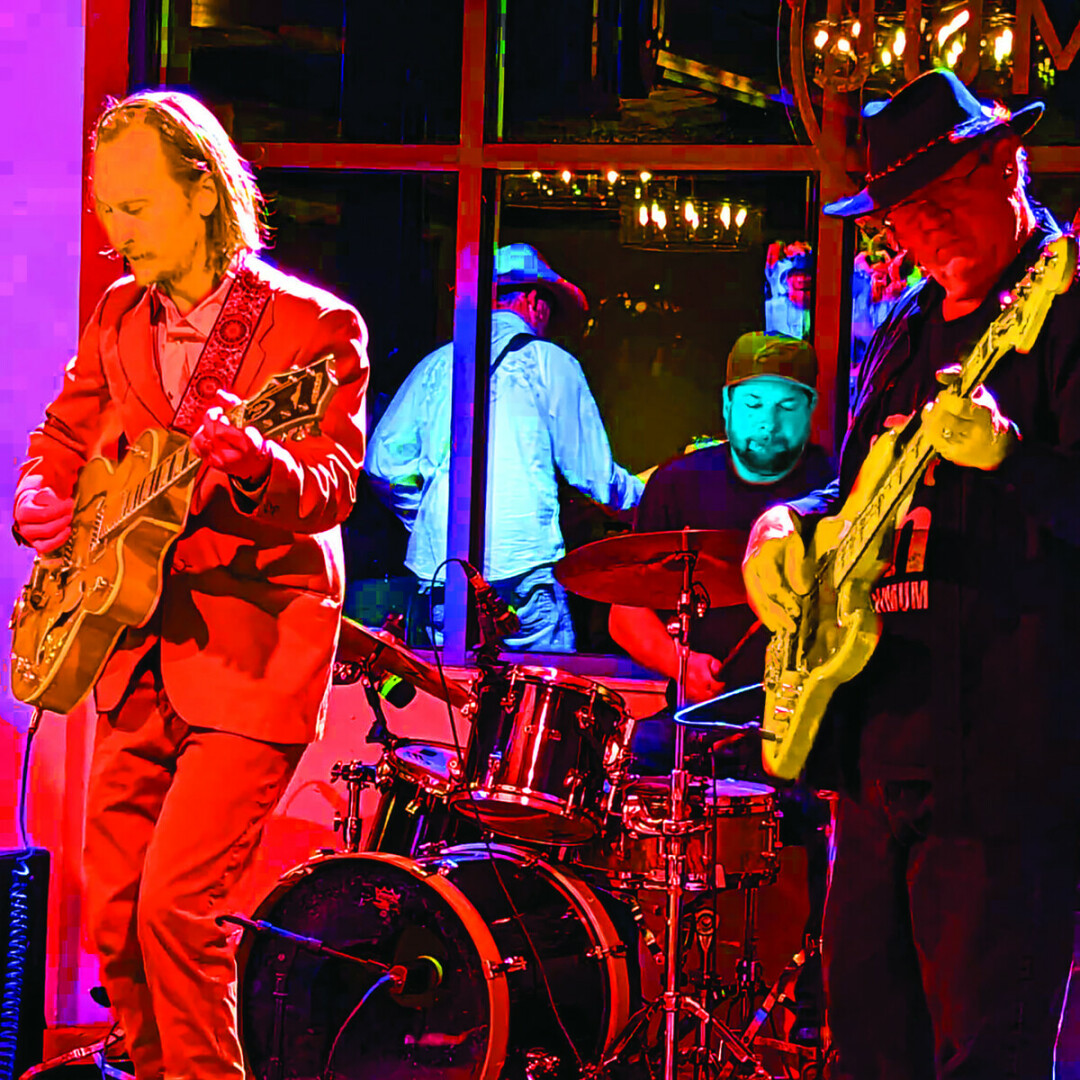
BR: How do you feel the local music scene has changed in the past ten years?
PK: It has grown a lot. There are more bands of almost every genre of music now, and a lot of them are serious badasses. It used to feel like there were only like 20 people in town who played out and most of them played in each other’s bands, so there was this real tight-knit community feeling because everybody showed up for everyone else’s show. Now, you have choices of many different acts almost every night, so it’s impossible to catch everything. However, the strength and support amongst the musicians and performers in the different genres is still there.
BR: Without naming any names, what do you think the new venues should be doing that they aren’t?
PK: Well, there’s certainly a lot more places to play, which is great, but my biggest thing is that there aren’t a lot of promoters and music directors, so you end up getting to places and there can be a lot of confusion. Most places expect the promotion, sound, and turnout to be left up to the bands. If you know how to do all that, it’s fine, but I feel like there’d be a better response if there were more facilitators to help bring those things together.
BR: With Bozeman growing so fast in the past couple years, how do you feel the new transplants in the area typically react to the music scene here?
PK: To be honest, I’ve felt nothing but gratitude from new people moving here as far as music goes. That could also be that playing country music fits into the whole western image of the Montana they’re trying to sell, but country music has always been a part of Montana for me. It’s no secret amongst locals that this town has always had a lot of talented musicians, but now the newly relocated have noticed as well.
BR: How many different bands or projects are you currently working on?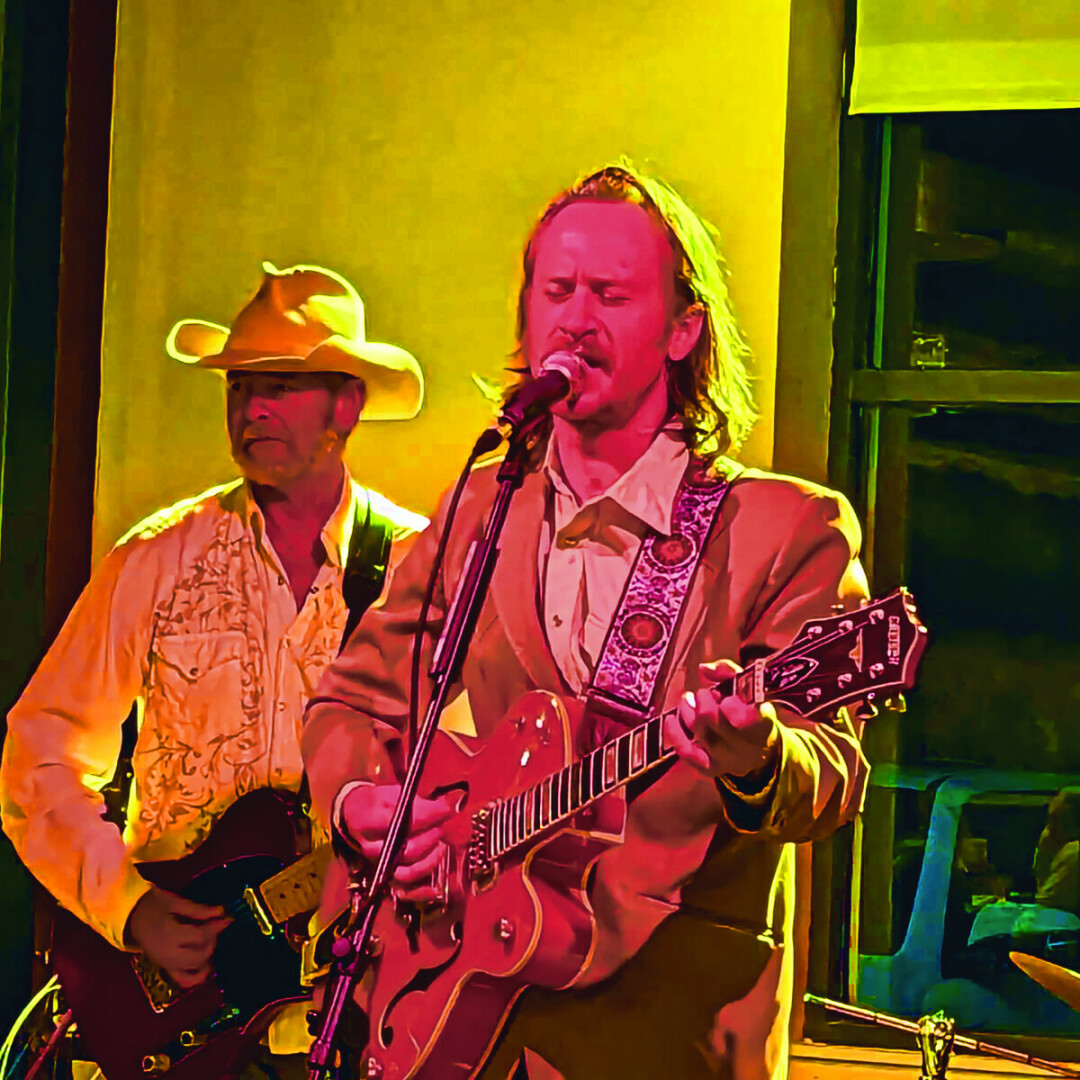
PK: Right now, I’ve got The Dead Yellers, The Salamanders, solo Peter King stuff, and Neon Rainbow, a 90s country band. Oh, and I’m doing some guitar and vocal collaborations with Brian Koenig (aka B-Nuggs) on his new hip-hop album.
BR: How/When did the idea for Neon Rainbow, your new 90’s Country Music tribute, come about?
PK: We would occasionally do a cover of some 90s country songs with the Dead Yellers and they seemed to be really well received. When I was a kid growing up in the 90s, my dad went through a big Montana cowboy phase in his life, so we’d go on these long drives exploring the state, fly fishing and riding horses, and he’d buy all these country cassette tapes at gas stations, and that’s what we’d listen to for hours on end in the back of this old brown suburban. I guess it just imprinted on my brain.
BR: How will Neon Rainbow be different from other bands that you have started or been in?
PK: Well, it’s going to be a lot more light-hearted and fun. Embracing the silliness of the 90s fashion, but also staying true to represent the songs in a respectful way, ‘cause they really are great songs from back then. It was the last time that country music was real—even though it was marketed, it hadn’t gone full-bro country yet.
BR: What should people expect when they come to check out Neon Rainbow at Bourbon on April 7th?
PK: Brush poppers, twang, big hair, mullets, boot scootin’ boogies… you know, just real authentic 90s country shit. A lot about livin’ and a little bout love, eh!
If you are a fan of 90’s country, we can not recommend enough that you check out Neon Rainbow, April 7 at Bourbon. Tickets are available online at: www.sellout.io/events/neon-rainbow

